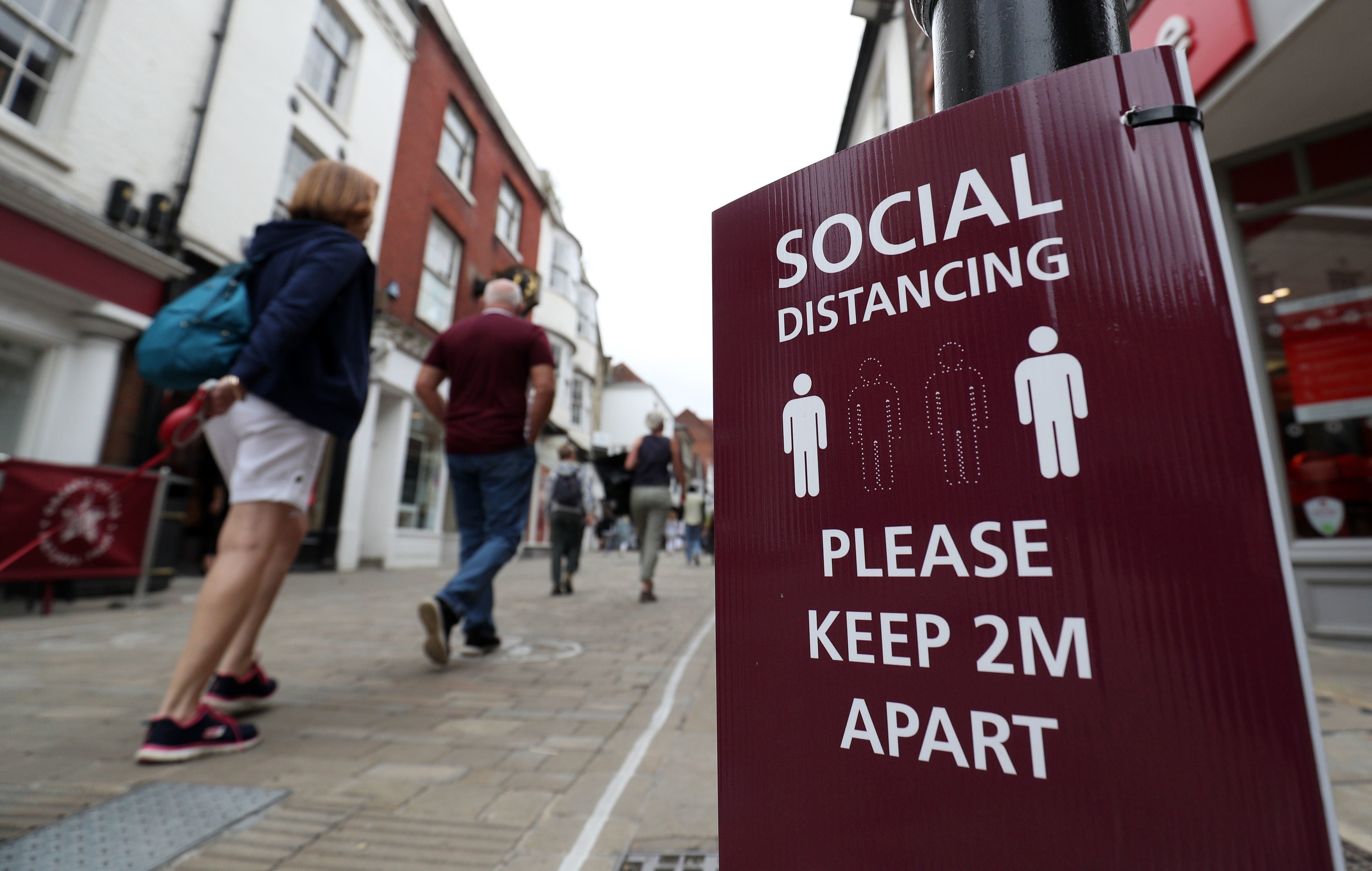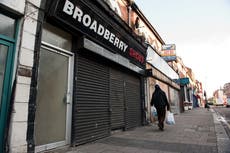UK retail sales plunge in latest national lockdown
Online sales grew 35.2 per cent but it was not enough to make up for the drop-off in stores

Your support helps us to tell the story
From reproductive rights to climate change to Big Tech, The Independent is on the ground when the story is developing. Whether it's investigating the financials of Elon Musk's pro-Trump PAC or producing our latest documentary, 'The A Word', which shines a light on the American women fighting for reproductive rights, we know how important it is to parse out the facts from the messaging.
At such a critical moment in US history, we need reporters on the ground. Your donation allows us to keep sending journalists to speak to both sides of the story.
The Independent is trusted by Americans across the entire political spectrum. And unlike many other quality news outlets, we choose not to lock Americans out of our reporting and analysis with paywalls. We believe quality journalism should be available to everyone, paid for by those who can afford it.
Your support makes all the difference.UK retail sales plunged in January as the national lockdown took a far greater toll on the high street than economists had forecast.
Official figures showed total sales dropped 8.2 per cent as non-essential shops closed their doors. A consensus of analysts had predicted a 2.5 per cent decline. All sectors saw revenues fall with clothing taking the biggest hit.
Overall retail sales remained 5.5 per cent below their level in February last year, the Office for National Statics reported.
Online sales grew 35.2 per cent in the month but that was not enough to make up for the drop-off recorded in shopping centres and on high streets.
Despite the negative economic data, government borrowing came in at £8.8bn in January, much lower than the £25bn that had been forecast.
The figures are likely to ease pressure on Rishi Sunak to announce tax rises and spending cuts at the Budget on 3 March. The UK’s total national debt stands at £2.1tn which is roughly equivalent to the entire amount of goods and services produced in the economy in 2019.
“Lower-than-expected borrowing in January should not be interpreted as a signal that the economy is withstanding the third lockdown relatively well,” said Samuel Tombs, chief UK economist at Pantheon Macroeconomics.
“A sharp £2.1bn year-over-year decline in interest payments, and the vanishing of contributions to the EU’s budget, which totalled £2.2bn in January 2020, helped.”
The prime minister is set to make an announcement on Monday laying out a roadmap for businesses in England to reopen.
Hospitality and retail industry bosses are among those urging the government to commit to definite dates so that businesses can plan ahead.
Trade body UK Hospitality said it had received indications from government that the prime minister would not even commit to a date for reopening in a particular month, but that he would tie the return of customers to data on Covid infections and hospitalisations or vaccine take-up.
The group’s chief executive, Kate Nicholls, told The Independent that businesses from pub chains to nightclubs were “hamstrung” by a lack of clarity from the government about the timing and conditions for reopening and the continuation of financial support.
Welsh ministers will discuss easing some coronavirus lockdown restrictions on non-essential retail in the coming weeks, Mark Drakeford said on Friday.
The first minister said hairdressers could be among the shops to reopen as early as 15 March, but warned any easing would be gradual.
Scotland’s first minister Nicola Sturgeon has said her government is focused on a “gradual, phased return to as much normality as possible”.
Northern Ireland’s lockdown will be extended to 1 April but some children will return to school earlier, Arlene Foster, the first minister, confirmed this week.

Join our commenting forum
Join thought-provoking conversations, follow other Independent readers and see their replies
Comments